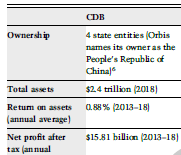
Highly recommend @stephenwertheim's newish book, "Tomorrow, the World."
A close look at how FDR outsourced a lot of postwar planning to private business and think tank leaders, who used racist arguments and discourse policing to remake internationalism.
hup.harvard.edu/catalog.php?is…
A close look at how FDR outsourced a lot of postwar planning to private business and think tank leaders, who used racist arguments and discourse policing to remake internationalism.
hup.harvard.edu/catalog.php?is…
It helps solve the puzzle of how we glided from a hemispheric and solidaristic orientation of the Good Neighbor policy in the early FDR years to eventually 800 bases globally.
nytimes.com/2009/07/14/opi…
nytimes.com/2009/07/14/opi…
Adds to our understanding of the complexity of the Roosevelt administration. The same admin had folks that engaged in extensive economic planning, and folks that sought to make economic planning more difficult after the war.
cambridge.org/core/books/gen…
cambridge.org/core/books/gen…
But at least in econ governance there were debates and competing tendencies. From Stephen's telling, the foreign policy "blob" of the day successfully sidelined an earlier generation of internationalists, who outlawed war. ht @oonahathaway @scottjshapiro
simonandschuster.com/books/The-Inte…
simonandschuster.com/books/The-Inte…
• • •
Missing some Tweet in this thread? You can try to
force a refresh












